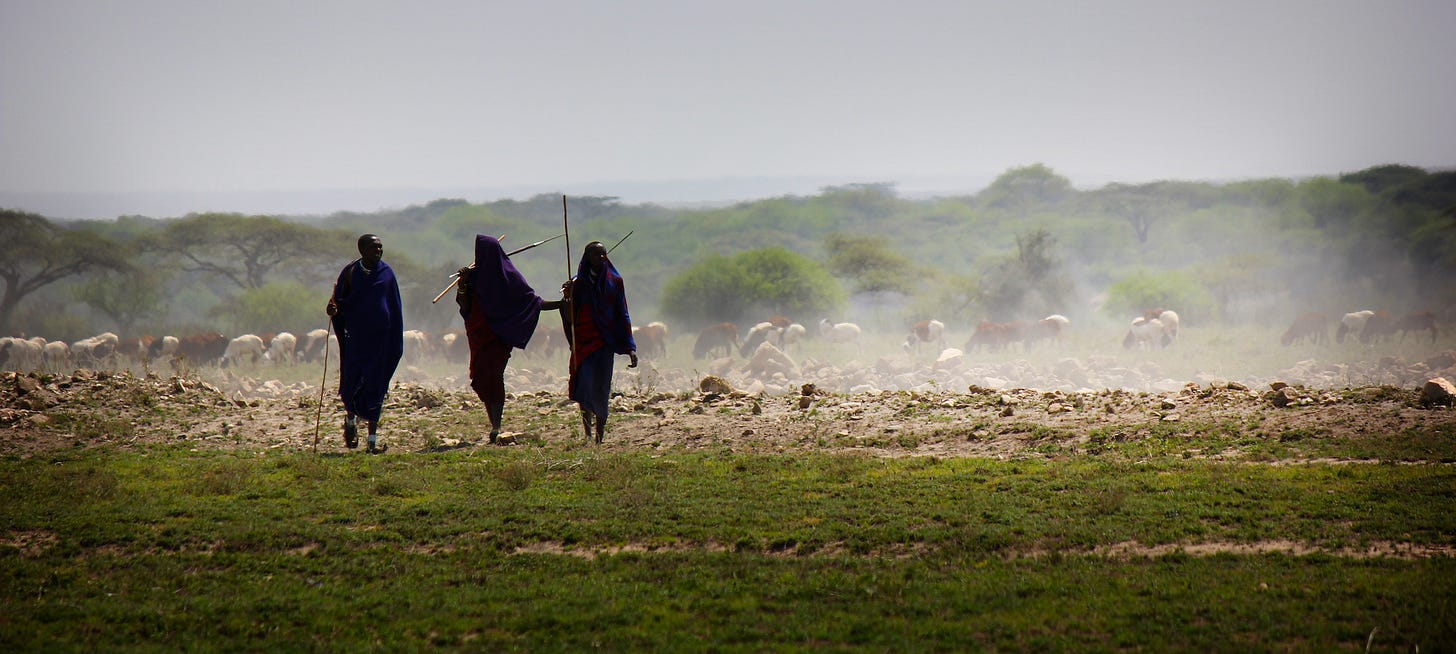Lions are the Losers as their Habitat is Swallowed Up
Agro-pastoralism and lions make for uneasy bedfellows
As the sun dipped below the horizon, casting long shadows across the savannah, Issa guided his cattle toward a shallow watering hole. He had been traveling for weeks, having started his journey in southern Chad as the dry season set in and options for feeding and watering his cattle started to decrease. He was slowly moving south, towards the wetlands and rivers of northern Central African Republic, where many of his cattle would be sold at market.
As he sat cleaning his ageing shotgun (herders never travel light these days) while he cattle wandered nearby, a sudden, uneasy silence settled over the land. Issa’s dog, ears pricked, let out a low growl. Then he saw it—a lion, golden in the fading light, crouched at the edge of the bush. It was rare to see any kind of wildlife these days, with most large mammals having been poached out in the 19080s and 1990s, but this was unmistakeable. It was alone, an old male, ribs faintly visible beneath its hide. Hunger had brought it close to Issa's herd.
Issa’s grip tightened on his weapon. He had heard about attacks on other herders, where a single lion had apparently taken out a full-grown bull in minutes. With a shout, Issa hurled a stone - shotgun shells were in short supply, and only to be used in an emergency. The lion flinched but did not retreat. He knew what came next - either the lion would back down, or there would be a need for the shotgun after all. His cattle shifted nervously. Raising his voice, he advanced, waving his arms. The lion hesitated, then moved away. There would be easier meals elsewhere.
Those events never happened, of course, but incidents similar to my imaginary account are occurring across the lion's range in Africa on a regular basis, particularly in the Sahel.
As numbers of people continue to grow across the continent, lion habitat has been rapidly degraded as pastoralists spread further across the landscape. The coexistence of people and lions has always been difficult, especially when pastoralists are poor and bring with them herds of livestock.
As mentioned in previous posts, the ultimate consequence of this displacement is that lions now occupy only 8% of their historical range. Africa’s human population is expected to increase dramatically, from 1.2 billion currently to 2.47 billion in 2050. In some cases, human population growth rates are highest near PAs, placing further pressure on already stressed ecosystems. Half of this growth is predicted in nine countries including Nigeria, Democratic Republic of the Congo, Ethiopia, Tanzania and Uganda—all lion range states. Grazing for domesticated animals increased by 15% during the same period.
As human encroachment increases, protected areas such as national parks and reserves become more important for the lions' long-term survival. However, these protected areas are subject to the same pressures that exist for the wider landscapes outside their boundaries. As human pressures increase, settlements are established right up to the protected area boundaries, and in many cases encroach into those areas themselves. Livestock in particular are often free to roam in protected areas, coming into conflict with carnivores such as lions when they do so. These conflicts don't usually end well for lions.
This human-lion conflict usually comes in one of two forms.
Firstly, livestock compete directly with lion prey species, leading to a degradation of habitat and a decrease in the numbers of those species.
Secondly, the numbers of encounters between lions and livestock increases, and lions are therefore much more likely to kill livestock. This results in retaliatory killings on the part of the herders, and this can be particularly devasting for lion numbers. A single poisoned prey carcass can result in the death of an entire pride of lions, for example.
It is for these reasons that the encroachment of people into lion habitat, and the consequent disappearance of that habitat, is the single biggest factor underlying the devastating decrease in lion numbers in recent years.




